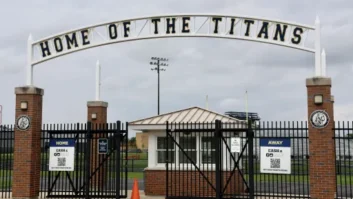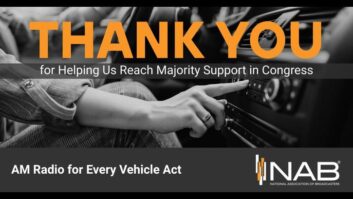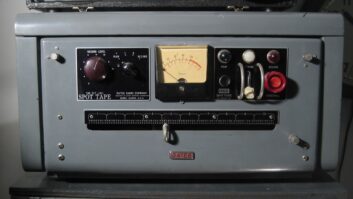I am grateful to those who toiled through Hurricane Katrina and its aftermath to keep radio stations on the air serving the public in a time of unprecedented need.
The tragic events in the south remind us of the importance of reliable, local, informed broadcasters to the fabric of our society.
Reading and watching the news from Louisiana, Mississippi and surrounding states, I found myself recalling the many times I’ve heard broadcast experts stress preparedness for stations.
How many opinion pieces have we written in these pages urging managers to prepare disaster plans and strategies? How many seminars and panels has the NAB sponsored to help stations prepare? How often did the topics of generators, food supplies and evacuation plans come up after 9/11?
Watching the Katrina news, I recalled a photo that Joseph Pollet had sent me last spring for publication in Radio World’s NAB convention preview issue. Pollet, DOE for Entercom’s New Orleans cluster, spoke in April in Las Vegas on “Hurricane Preparedness in a City Below Sea Level,” unaware that his station’s plan soon would be pressed into use.
“Since the Southeast was hit hard during last hurricane season, owners and managers are likely to sit up and take notice of the morning sessions,” we wrote in March about storms of 2004.
“Pollet is scheduled to discuss general planning and the resultant specific checklists that went into the development and evaluation of the WWL Radio hurricane operating plan and its ongoing effect on the station’s news, programming and engineering departments.”
Well Pollet and his colleagues must have practiced what they preached. Here’s another excerpt, this one from a Newhouse News Service article in the Houston Chronicle Sept. 4:
“Call it the talk show from the end of the world. WWL(AM) 870, New Orleans’ oldest and most powerful radio station, has continued to broadcast since Hurricane Katrina struck. With a collapsed telephone system, no power and several television stations off the air, ‘The Big 870’ has tossed an information lifeline to a drowning city.
“The broadcasts are a stunning mix of interviews with officials, many of whom say it’s their only way to plead for help from the outside world, plus call-ins from desperate residents, and long soliloquies from exhausted anchors pondering what future, if any, New Orleans may have,” the article reported.
“‘The best communication we have is this radio station,’ said Phil Capitano, the mayor of Kenner, La., during an interview Wednesday on the station. Kenner, where the city’s main airport is located, is west of New Orleans.”
How’s that for serving the public necessity?
WWL’s good work earned headlines. But kudos to all radio engineers who kept their stations going, managers who allowed staff to share resources with other broadcasters, news people who worked around the clock, most of whom will never receive or ask for proper appreciation.







